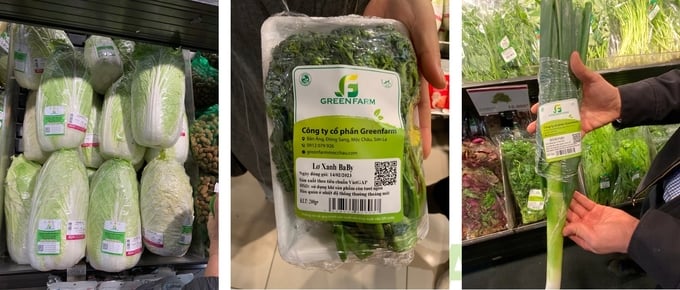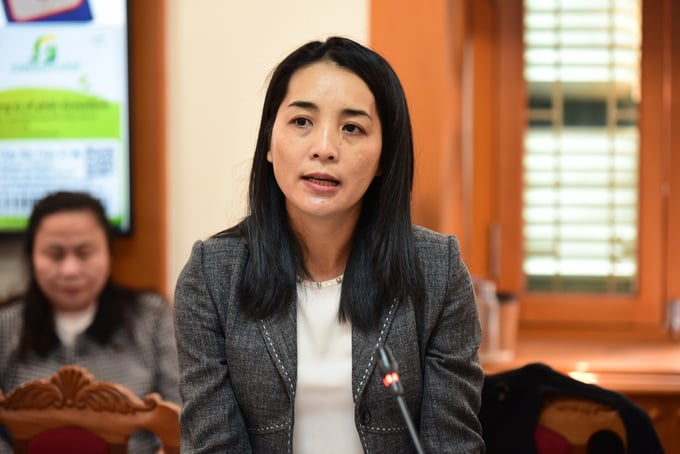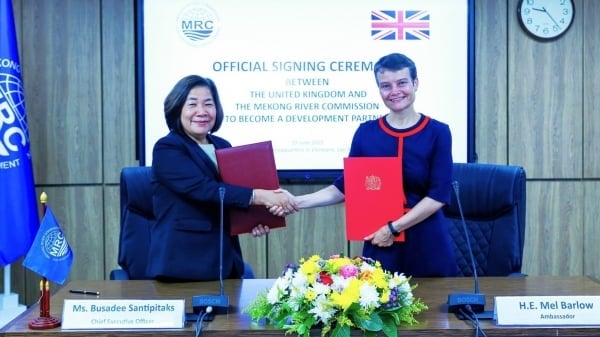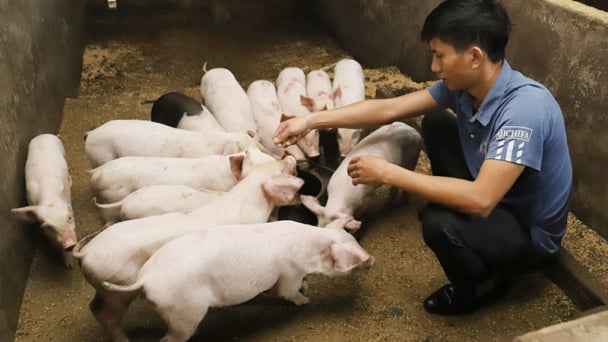June 21, 2025 | 01:33 GMT +7
June 21, 2025 | 01:33 GMT +7
Hotline: 0913.378.918
June 21, 2025 | 01:33 GMT +7
Hotline: 0913.378.918

Vegetable products from the project receive positive reviews from retailers.
At the forum “Promoting digitalization in agro-product and food traceability” held today, representatives of the Australian Center for International Agricultural Research (ACIAR) have come to share some results of the project concerning the usage of digital tools in the management of agro-product value chains.
According to Ms. Nguyen Thi Nga, Project Coordinator, the project "Pilot digital monitoring of VietGAP compliance and quality control in Vietnam's vegetable value chain" was sponsored by ACIAR and implemented by Applied Horticultural Research (AHR), Northern Mountainous Agriculture and Forestry Science Institute (NOMAFSI), and Hitachi Vantara Corporation.

ACIAR’s new project utilizes digital tools in vegetable production management.
Moc Chau, a land suitable for growing many kinds of temperate vegetables, was chosen to execute the project. Moc Chau has enough land to cultivate (40.000 ha), and it is not too far from Hanoi (approximately 200 km). Having those characteristics, ACIAR has had many support projects in Moc Chau since 2021. As a result, every year 70,000 tons of vegetables are collected from Moc Chau and Van Ho, thus a vegetable industry worth AUD 30 million (in 2021) was well-established.
Some activities of the project include creating an electronic recording application for farmers to fill in the information regarding production on the field; the EscavoxTM device that measures temperature, humidity and provides GPS location; on-farm label printing with information about the product, QR codes and barcodes for retailers and consumers; VietGAP compliance tracking log for each shipment which compliance reports are stored in the cloud.
The project team has conducted several surveys, and the data shows that most consumers believe that packaging, certification and labeling are important. The majority of respondents use QR codes to check products, but they didn't check often and instead have more faith in the brand. QR codes are considered useful for products that are consumed fresh such as tomatoes, cucumbers, and thin-skinned fruits. After scanning a QR code, consumers usually want to see information such as production area, packaging facilities, product package weight, expiry date, and certification.
Vegetable products from the project receive positive reviews from retailers, such as AEON (supplied by Greenfarm SJC) and MegaMarket (supplied by Nature Safe Vegetables Cooperative). But it is important to note that thanks to applying digitization in the vegetable value chain, the project has brought immense benefits for farmers: more orders, better quality, longer storage, better proof of traceability, and higher selling price.
![Turning wind and rain into action: [10] Advancing accessible climate services for farmers](https://t.ex-cdn.com/nongnghiepmoitruong.vn/608w/files/linhnhp/2025/06/20/1911-z6704423696987_15fd32ffc26d590d204d520c9dac6786-nongnghiep-161854.jpg)
(VAN) Not only does it help farmers 'avoid droughts and rains,' the development of agricultural climate services also enhances their ability to proactively adapt to a rapidly changing climate.

(VAN) With international assistance, the harvesting of sargassum seaweed in Quang Ngai has become increasingly regulated, thereby safeguarding marine life and ensuring the stability of coastal communities' livelihoods.

(VAN) On June 19, the United Kingdom officially became a Development Partner of the Mekong River Commission.

(VAN) Biodiversity is being threatened by traditional remedies made from wildlife. Traditional medicine and humans must change to live in harmony with nature.

(VAN) Agrifood investment and finance solutions for people and the planet.

(VAN) Microplastic contamination has become pervasive in seafood, posing unprecedented challenges for food safety and marine ecosystems.

(VAN) Proactively using vaccines, combined with transport control and enhanced surveillance, is the only viable path toward biosecure and sustainable livestock production in Vietnam.